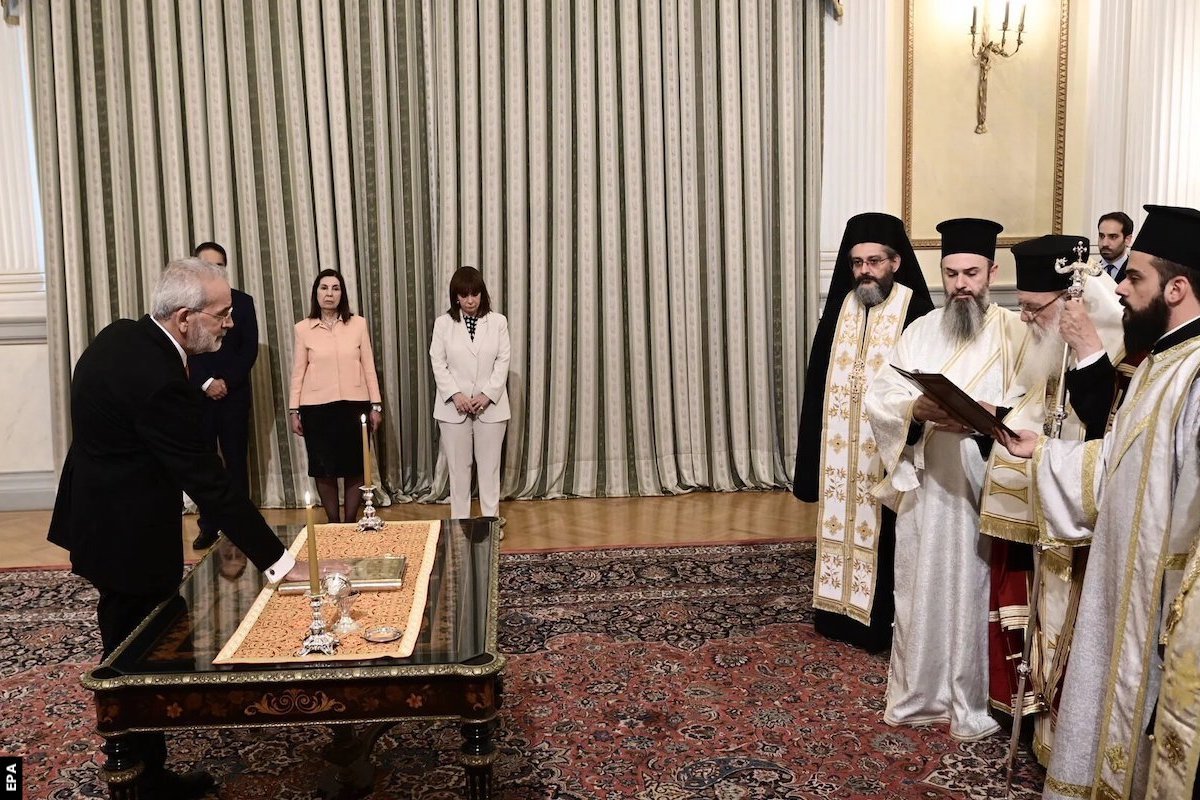Following Greece’s national elections on May 21, a caretaker government was officially sworn in on Friday at the Presidential Palace. Ioannis Sarmas, the president of the Court of Audit, who was appointed caretaker prime minister, provided the interim ministers with their initial guidelines.
“We must be neutral, impartial, objective and weigh our actions and their consequences so that they are not considered to constitute intervention in favor of or against any faction in the following election campaign,” said Ioannis Sarmas
The need for an interim government arose after the New Democracy party, despite winning the most votes with 40.79%, failed to secure a majority and party leaders declined to form a coalition government. The main opposition party, SYRIZA, received 20.07% of the votes, placing it in second position. PASOK, a socialist party, secured 11.46% and ranked third, followed by the Greek Communist Party with 7.23%. The far-right populist Greek Solution party secured fifth place with 4.45% of the votes.
The caretaker government will govern the country until a new election takes place in late June, providing stability and ensuring the continuity of essential functions until a permanent government can be formed.

The Caretaker Government:
Minister of State
Vassilis Skouris – Former Interim Interior Minister and former President of the European Court of Justice (ECJ)
Foreign Affairs Minister
Vassilis Kaskarelis – former Greek Ambassador and Permanent Representative of Greece to NATO during the 200-2004 period
National Defense Minister
Alkiviadis Stefanis – Former National Defense Deputy Minister and Head of the Hellenic Army General Staff
Citizen Protection Minister
Charalambos Lalousis – Former Head of the Hellenic Army General Staff specializing in Thrace and Turkey relations
Civil Protection Minister
Evangelos Tournas – Greek Air Force General and former Civil Protection Deputy Minister
Culture Minister
Education Minister
Christos Kittas – Professor of Medicine and former Rector of the University of Athens
Tourism Minister
Ioanna Dretta – Former Marketing Greece CEO
Health Minister
Anastasia Kotanidou – Professor of Pulmonology and Intensive Care Specialty at the University of Athens
Interior Minister
Kalliopi Spanou – Professor of Public Administration and Law at the University of Athens
Justice Minister
Filippos Spyropoulos – Professor of Constitutional Law at the University of Athens
Development and Investments Minister
Eleni Louri – Professor at the Department of Economics of the Athens University of Economics and Business
Minister of Economy
Theodoros Pelagidis – Deputy Governor of the Bank of Greece
Minister of Environment and Energy
Pantelis Kapros – Professor of energy economics and operational research at the School of Electrical and Computer Engineering of the National Technical University of Athens
Minister of Labor and Social Affairs
Patrina Paparrigopoulou – Professor of public law
Minister of Immigration and Asylum
Daniel Esdras
Minister of Digital Governance
Sokratis Katsikas
Minister of Infrastructure and Transport
Yannis Golias
Minister of Maritime and Island Policy
Theodoros Kliaris
Minister of Rural Development and Food
Giorgos Tsakiris
Government spokesperson
Ilias Siakantaris











